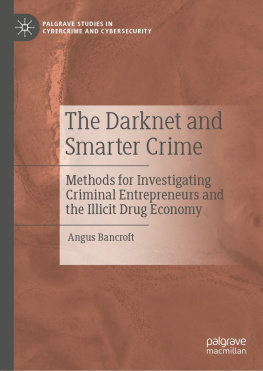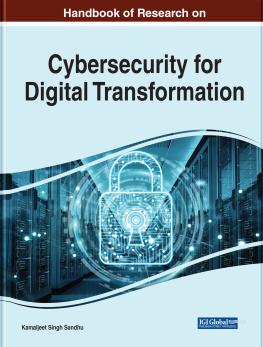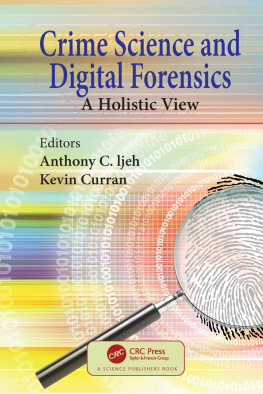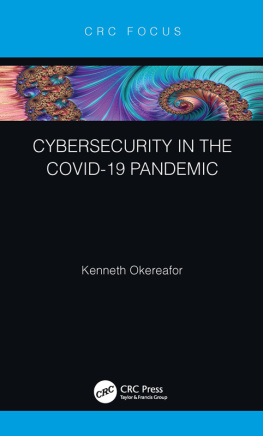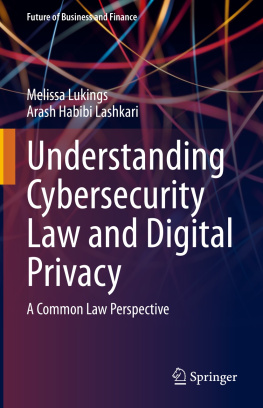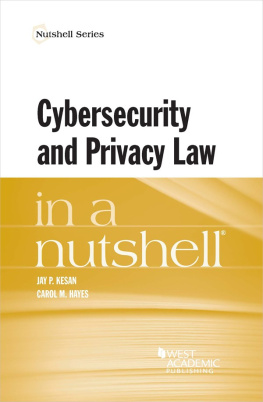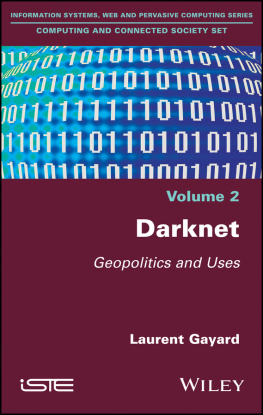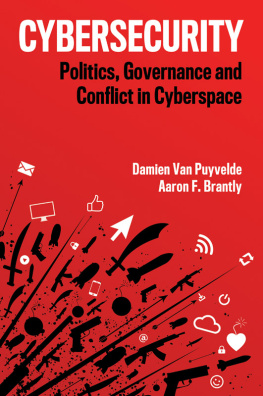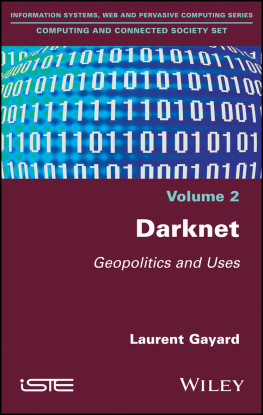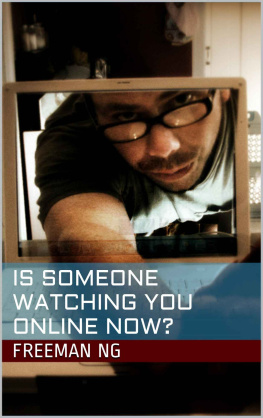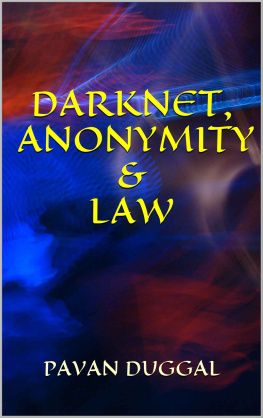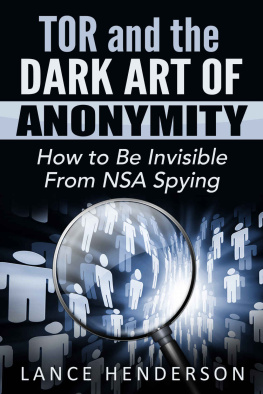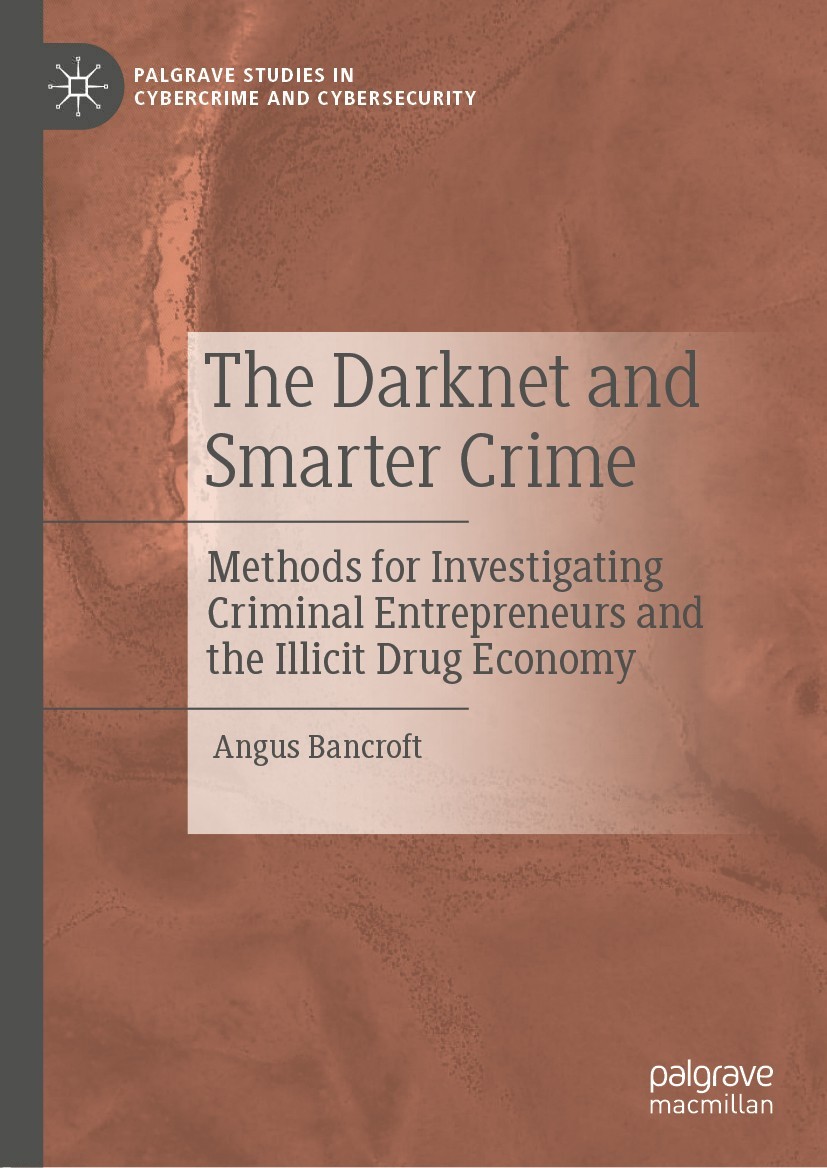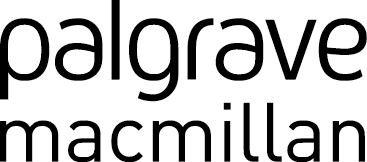Palgrave Studies in Cybercrime and Cybersecurity
Series Editors
Marie-Helen Maras
Department of Security, Fire and Emergency Management, John Jay College of Criminal Justice, New York, NY, USA
Thomas J. Holt
Michigan State University, East Lansing, MI, USA
This book series addresses the urgent need to advance knowledge in the fields of cybercrime and cybersecurity. Because the exponential expansion of computer technologies and use of the Internet have greatly increased the access by criminals to people, institutions, and businesses around the globe, the series will be international in scope. It provides a home for cutting-edge long-form research. Further, the series seeks to spur conversation about how traditional criminological theories apply to the online environment. The series welcomes contributions from early career researchers as well as established scholars on a range of topics in the cybercrime and cybersecurity fields.
More information about this series at http://www.palgrave.com/gp/series/14637
Angus Bancroft
The Darknet and Smarter Crime
Methods for Investigating Criminal Entrepreneurs and the Illicit Drug Economy
Angus Bancroft
School of Social and Political Science, University of Edinburgh, Edinburgh, UK
Palgrave Studies in Cybercrime and Cybersecurity
ISBN 978-3-030-26511-3 e-ISBN 978-3-030-26512-0
https://doi.org/10.1007/978-3-030-26512-0
The Editor(s) (if applicable) and The Author(s) 2020
This work is subject to copyright. All rights are solely and exclusively licensed by the Publisher, whether the whole or part of the material is concerned, specifically the rights of translation, reprinting, reuse of illustrations, recitation, broadcasting, reproduction on microfilms or in any other physical way, and transmission or information storage and retrieval, electronic adaptation, computer software, or by similar or dissimilar methodology now known or hereafter developed.
The use of general descriptive names, registered names, trademarks, service marks, etc. in this publication does not imply, even in the absence of a specific statement, that such names are exempt from the relevant protective laws and regulations and therefore free for general use.
The publisher, the authors and the editors are safe to assume that the advice and information in this book are believed to be true and accurate at the date of publication. Neither the publisher nor the authors or the editors give a warranty, expressed or implied, with respect to the material contained herein or for any errors or omissions that may have been made. The publisher remains neutral with regard to jurisdictional claims in published maps and institutional affiliations.
This Palgrave Macmillan imprint is published by the registered company Springer Nature Switzerland AG
The registered company address is: Gewerbestrasse 11, 6330 Cham, Switzerland
Acknowledgements
Dr. Kimberley Masson whose input has been fundamental to the development and final version of this book and the thinking behind it, and for many more reasons besides.
I would like to thank Liam and Palgrave for giving me the opportunity to write this book and their patience.
My deepest acknowledgements to co-author Peter Scott Reid. Versions of Chapters were published with him in two journals. Without him, none of the research for this book would have begun.
A version of Chapter in Health, Risk and Society .
Thank you to those who have contributed to the research and thinking behind this book: Alex Voss, Ilia Lvov, Rebecca Hewer, Andreas Zaunseder, Ben Collier, Daniel, Shivina, Fia, Francesca and Amy.
Inspiring authors and guiding lights: Monica Barratt, David Dcary-Htu, Sarah Jamie Lewis. The many contributors to Cryptomarkets Research Hub. Their passion, tenacity and creativity have opened new ground.
Overview of the Book
In this book, I explain why criminals would benefit from having fewer friends and more acquaintances (the strength of weak ties in cybercriminal networks), why drug dealers are best working in open online spaces (when and why anonymity technologies fail), why cybercrime is sometimes moral (how criminal markets regulate and limits criminal behaviour), why internet scams need helplines (criminals and victims need to obtain expertise), and why more digital engagement means less knowledge (trust interferes with quality signalling).
This book draws on research into illicit online drug markets to examine themes of cybercrime, security, and privacy as well as the changing nature of digital societies and of drug use. Digitally mediated societies share a general problem in common: there is a range of emerging threats towards individuals and societies conducted by organisations and individuals that use digital means as their attack vectors. What these threats are, where they come from, how they are motivated and what to do about them is an area of contention. Citizens, states, non-governmental organisations and private corporations are often at a loss as to how to attribute threats to variously the effect of existing and developing technologies, the enhanced organisational capacity of malicious actors, and the weakness of existing societal institutions and norms. There are concerns about the loss of privacy and autonomy in the face of state surveillance and corporate digital feudalism, the capacity of Artificial Intelligence (AI) to be misused and of technology generally to make harmful actions low cost or costless. At the same time, societies face the creation of ungovernable spaces and the facilitating of terrorism, drug dealing and interpersonal harassment. There is at best limited agreement on what secure digital spaces mean and how safety can be improved without effectively ending liberty. Solutions are often proposed in the technical arena, such as that traceability can substitute for trust.
There are a growing number of conflicts around digital security that combine technical challenges with competing political and public agency priorities. For example, increased online surveillance might mean decreased technical security in cases where it is proposed that encryption is weakened to facilitate law enforcement surveillance. Competing demands are not necessarily reducible to a single concept of what digital security should be, nor can they be dealt with effectively on a purely technical or system level. These differences and disputes highlight the dual nature of the internet. The internet both allows new publics to emerge and also creates opportunities for state and private domination through control of the data infrastructure.
Fear of crime can mislead. The internet has its dangerous spaces, and some lawless spaces, which are not the same thing. The ungoverned and dark parts of the internet can be functional and community creating. We can learn from illicit groups and the techniques used by them. Sometimes illicit groups are trying to solve the same problems the rest of us are regarding how to verify and trust information and motives, how to avoid exposure, how to validate the data infrastructure and how to assess risk. Therefore, some of the same tools can be used to assess the extent and intent of illicit activity. It also leads me to question the direction in which the internet and digital culture is changing, towards something more governed and watchful, where principles of personal ownership and control are replaced with those of rental and licensing. As digital societies change, so do the structured opportunities for criminal activity. At the moment, they are changing away from seeking out and exploiting vulnerabilities in the technical infrastructure, and towards making use of the developing social media infrastructure.

